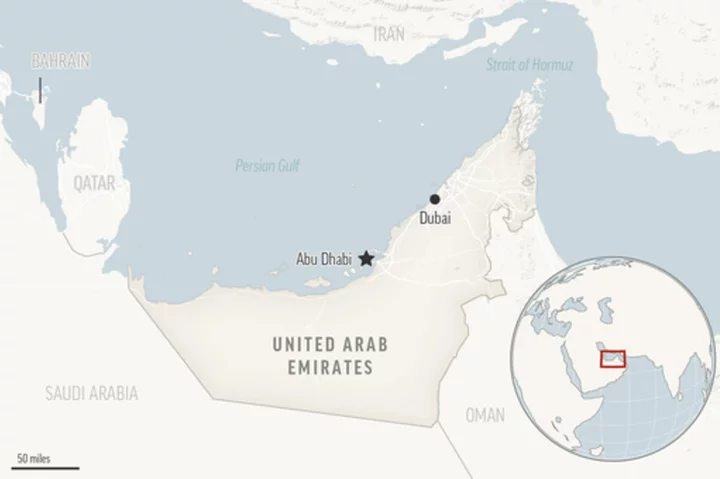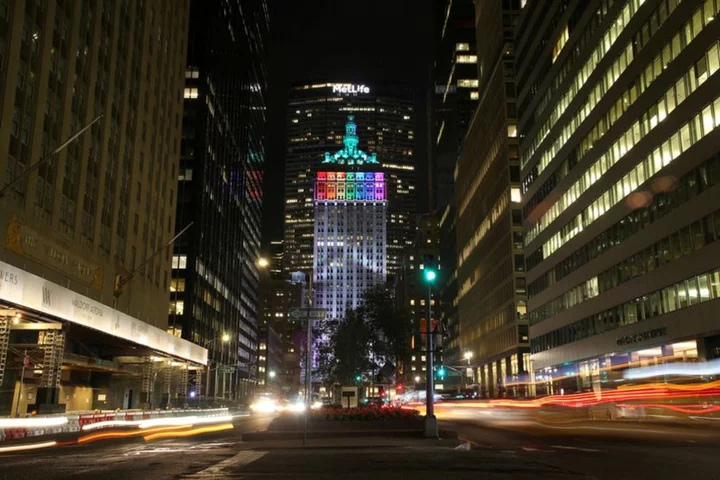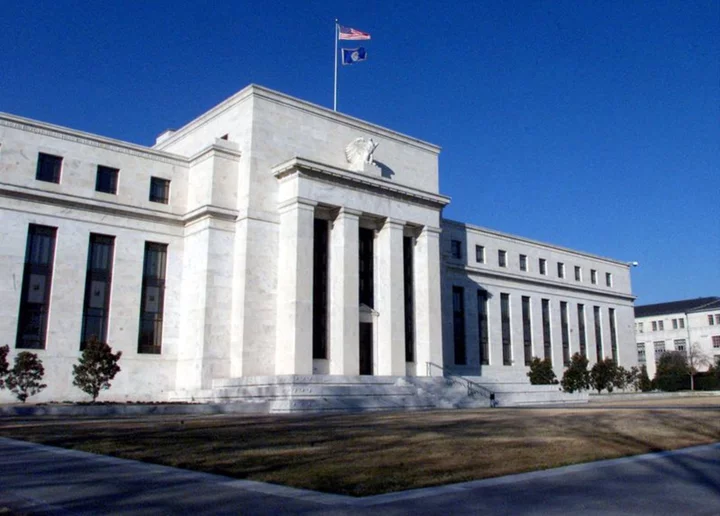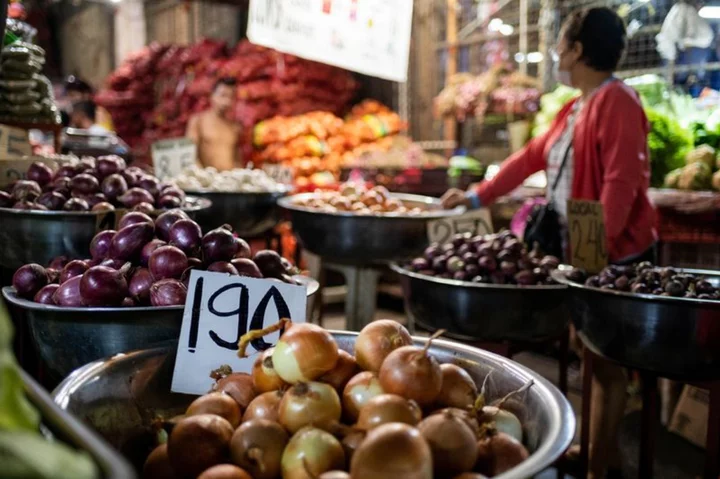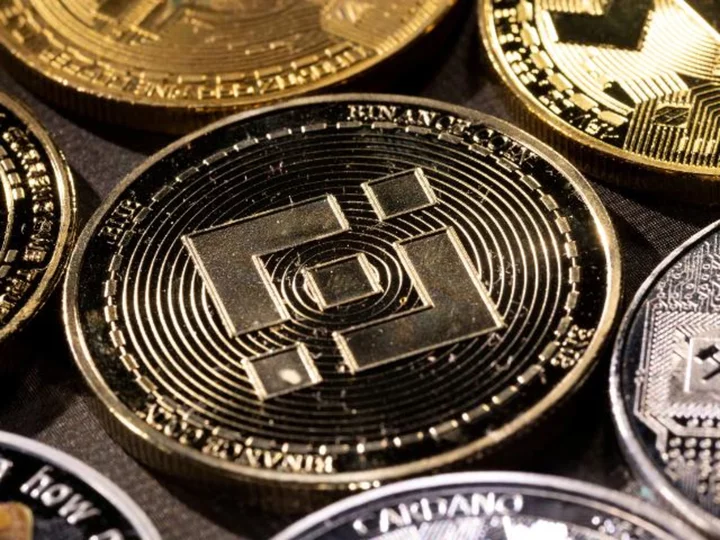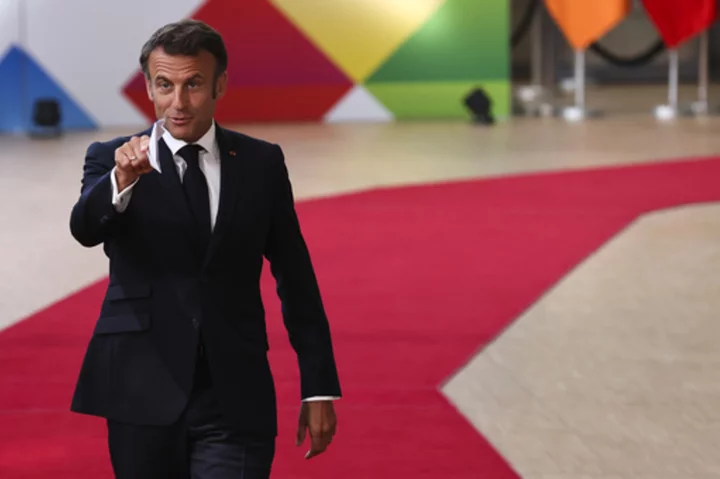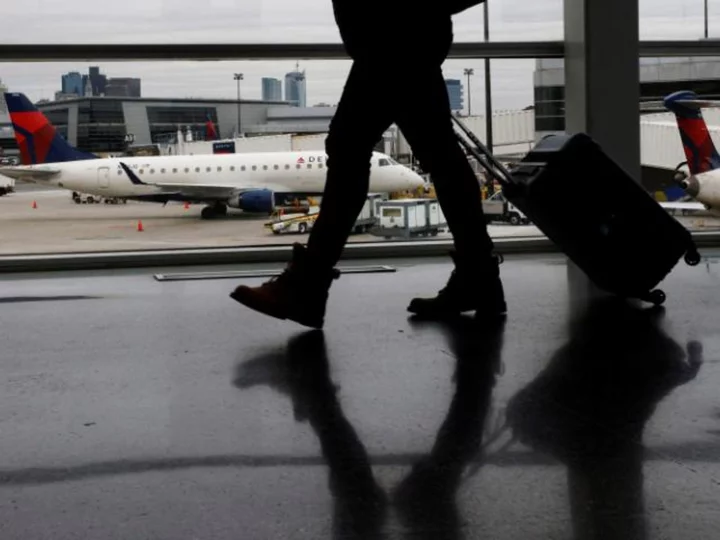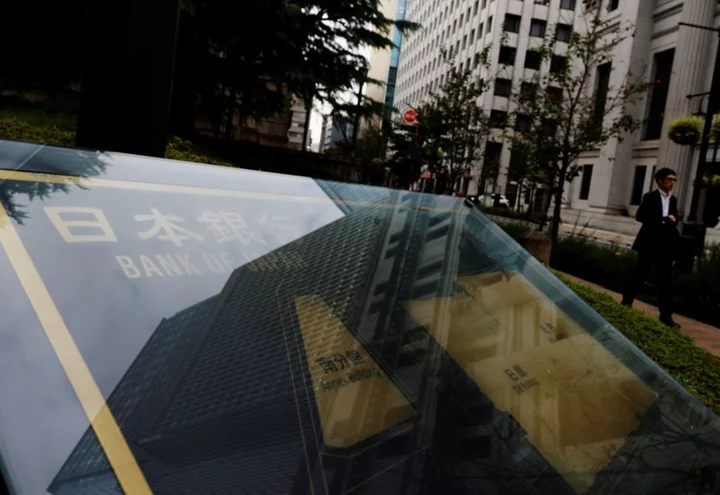DUBAI, United Arab Emirates (AP) — The United Arab Emirates has created a federal authority to potentially run a national lottery and what it describes as “commercial gaming,” likely a sign that it is on the verge of allowing gambling as major casino operators flock to the Gulf Arab nation.
The state-run WAM news agency carried an announcement late Sunday on the creation of the General Commercial Gaming Regulatory Authority, without offering many details about its structure or operations.
It named Kevin Mullally as its CEO. Mullally once served as the executive director of the Missouri Gaming Commission, which oversaw that U.S. state's riverboat casinos.
“I am delighted to have been appointed as the inaugural CEO of the GCGRA," Mullally said in the statement. "With my experienced colleagues, I look forward to establishing a robust regulatory body and framework for the UAE’s lottery and gaming industry.”
Mullally did not immediately return a request for comment from The Associated Press.
Also named was Jim Murren as the chairman of the authority's board of directors. Media in Nevada, home to the gambling city of Las Vegas, identified Murren as a former chairman and CEO of MGM Resorts International, which also runs casinos. Murren could not be immediately reached by the AP.
Murren also worked closely with officials in the Emirates in the past. The biggest single development on the Las Vegas Strip was the $9.2 billion CityCenter partnership between MGM Resorts International under Murren and Dubai World, which opened in 2009. Its Harmon tower never opened due to construction defects and was dismantled.
Murren also headed Nevada’s COVID-19 response and tried to pitch the state on using UAE-donated, Chinese-made testing kits. U.S. diplomats and security officials privately warned the state of Nevada not to use the Chinese-made coronavirus test kits over concerns about patient privacy, test accuracy and Chinese government involvement, documents obtained by the AP showed.
Describing the authority, WAM said it would “create a socially responsible and well-regulated gaming environment, ensuring that all participants adhere to strict guidelines and comply with the highest standards.”
“It will coordinate regulatory activities, manage licensing nationally and facilitate unlocking the economic potential of commercial gaming responsibly,” it added.
Casinos long have been rumored to be considered as a way to raise money in the UAE and boost its tourism industry, particularly in Dubai, home to the long-haul airline Emirates. Already, duty-free car raffles bombard those flying through Dubai International Airport.
A 2004 U.S. diplomatic cable released by WikiLeaks speculated that Dubai’s casino plans had “been put on ice due to deference” to the late Sheikh Zayed bin Sultan Al Nahyan, the country’s first president after unification in 1971.
But in recent years, rumors about casinos kept growing. Britain’s famed ship the Queen Elizabeth 2 opened as a hotel in Dubai in 2018 after over $100 million of repairs. It still has its deactivated slot machines on board. Caesars similarly opened in 2018. Construction work is ongoing involving projects for casino firms MGM, the Bellagio and Aria.
In 2022, the UAE's northern-most emirate Ras al-Khaimah announced a multibillion-dollar deal with Las Vegas-based casino giant Wynn Resorts. Authorities in Ras al-Khaimah repeatedly refused to directly describe the hotel as having gambling, though Wynn has described the project as involving the “subsequent management of an integrated resort.” The term “integrated resort,” born in Singapore, refers to a hotel that includes a casino and other amenities.
Casinos still remain rare across much of the Middle East as Islam forbids it. However, casinos operate in Egypt and Lebanon. Adding casinos in the UAE could help boost its profitable tourism industry — and help regain the Chinese travelers it lost during the coronavirus pandemic.
The creation of a federal authority suggests Abu Dhabi, the country's capital, will oversee the potential operation of casinos in the country. However, this federation of seven sheikhdoms places absolute power in the local rulers of its seven emirates, particularly over social concerns. The emirate of Sharjah, for instance, bans the sale of alcohol. Any casino operations may follow the same pattern.
However, casinos and the large amounts of cash they generate raise the danger of money laundering. Already, war profiteers, terror financiers and drug traffickers sanctioned by the U.S. in recent years have used Dubai’s real-estate market as a haven for their assets. Ras al-Khaimah also found itself linked to the case of an Alaska man who laundered $1 billion held in South Korea for Iran.

